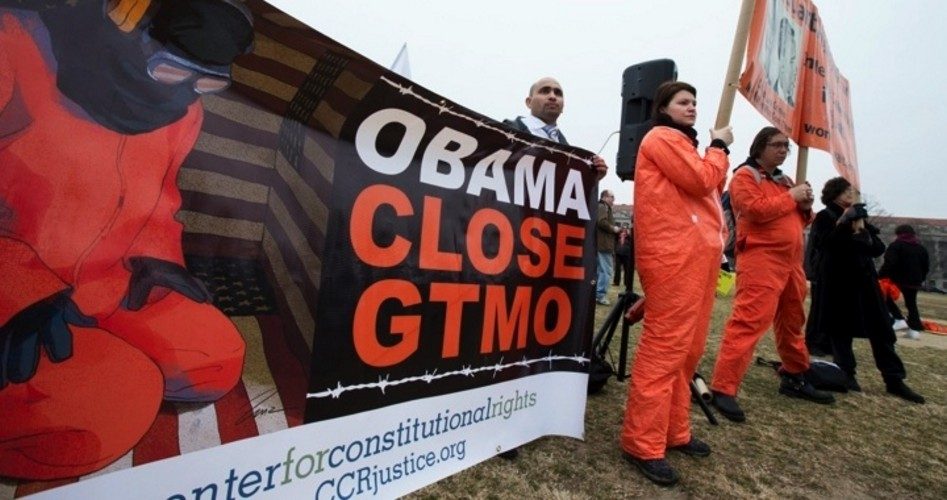
President Barack Obama issued an order on January 28 to shut down the small office he created with the responsibility of closing Guantanamo Bay prison. Obama repeatedly promised during the 2008 presidential campaign and immediately after assuming office to close the Cuban prison, which houses many of the detainees picked up after the invasion of Afghanistan in 2001, but the closure never happened.
Despite being touted by former Vice President Dick Cheney as housing the “worst of the worst” suspects in the “war on terror,” most of the detainees turned out to be innocent people picked up at the wrong place at the wrong time during the fog of war, such as the Chinese Uyghurs and the British-Pakistani trio “Tipton Three” profiled in the award-winning documentary movie The Road to Guantanamo. A study of Guantanamo detainees by Seton Hall Law School Professor Mark Denbeaux revealed that only seven percent of them had been picked up by U.S. or coalition forces on the Afghan or Iraqi battlefields; the rest were captured by bounty hunters or friendly governments such as Pakistan. The Guantanamo prison still holds 166 prisoners, and some 86 have been cleared for release by the Obama administration, even as they have continued to languish in prison for up to 12 years.
The Obama administration’s decision closed a pretty small office, populated primarily by one employee, Daniel Fried, and some secretarial assistants. Charlie Savage of the New York Times described Fried this way:
A career diplomat, Mr. Fried traveled the world negotiating the repatriation of some 31 low-level detainees and persuading third-party countries to resettle about 40 who were cleared for release but could not be sent home because of fears of abuse.
Savage added that the move “appeared to signal that the administration does not currently see the closing of the prison as a realistic priority, despite repeated statements that it still intends to do so.”
Senator Barack Obama pledged to close Guantanamo, and two days after his 2009 inauguration he had issued an executive order requiring closure “as soon as practicable, and no later than 1 year from the date of this order.” But when the year deadline arrived, the president announced in a national speech January 5, 2010 that he had been forced to “revisit the decision to close the prison at Guantanamo Bay” even though he renewed his pledge that “We will close Guantanamo prison, which has damaged our national security interests and become a tremendous recruiting tool for al-Qaeda. In fact, that was an explicit rationale for the formation of al-Qaeda in the Arabian Peninsula. And, as I’ve always said, we will do so — we will close the prison in a manner that keeps the American people safe and secure.”
As recently as January 22 of this year, White House Press Secretary Jay Carney told members of the White House press corps concerning the closing of Guantanamo that “the President remains committed to that. He agrees with military leaders as well as his immediate predecessor that we ought to do that. There are obviously obstacles in Congress to that, but we will continue to work towards that goal because he believes it’s in the best interests of our national security.” But the trickle of detainees released during the Bush administration and the early Obama administration has all but stopped in recent years.
The president has been inconsistent when dealing with the Guantanamo detainees, claiming as late as 2011 in a White House memorandum that he had “continued commitment to Article III trials,” meaning that Guantanamo detainees that had committed actual crimes would be tried in ordinary criminal courts. But his administration has mainly pursued ad hoc military tribunals against a handful of detainees, who are accused of various crimes that have never been labeled “war crimes” by the Geneva Conventions or other international treaties. The invention of “conspiracy” as a war crime has led the military prosecutor in Obama’s military tribunals to protest the decision publicly. Most detainees at Guantanamo continue to be held without ever being charged with a crime, some for more than 11 years.
Photo of Jan. 11 protest against Guantanamo Bay prison: AP Images



